#bbc earth Antarctica
Explore tagged Tumblr posts
Video
youtube
How a Simple Tractor Conquered the South Pole
Mar 30, 2025 BEAUVAIS In 1957, a team of Kiwis, led by Sir Edmund Hillary, set out to on a journey across Antarctica. they were there to support a Commonwealth Expedition to cross the continent, but soon they'd be at South Pole—not in tanks or snowcats, but in three tiny Ferguson farm tractors. I travel to France to track one of these amazing machines down.
18 years ago, Simon Coggins recorded a projection of a documentary on the crossing. He uploaded it to Youtube and, thanks to him, we can watch it. If only more places uploaded such archives! • The Commonwealth Trans-Antarctic Expe...
"The Great Achievement" film on the crossing: • The Great Achievement
Antarctica 2 Crossing - worth a watch! • Antarctica2 tractor arrives in Antarc...
Brilliant 90's Documentary about the Ferguson: • The Ferguson TEA 20 - BBC Perpetual M...
Sources: Shackleton's Dream by Stephen Haddelsey UK: https://amzn.to/4hQGUr2
Antarctica: A Biography by David Day (amazing book) UK: https://amzn.to/42bcsSy US: https://amzn.to/443dqCY
Great history on the Ferguson Tractor, Harry especially. https://forums.yesterdaystractors.com...
Great article about the tractors uses in Antarctica: https://www.fofh.co.uk/articles/pole.htm
Incredible two-part magazine feature about the Fergusons time in Antarctica. Truly definitive history of the crossing: Part 1 - https://static1.squarespace.com/stati... Part 2 -https://static1.squarespace.com/stati...
00:00 - The Tractor that Drove to the End of the Earth 01:52 - Why The Ferguson Tractor? 06:21 - Thanks Odoo! 08:12 - A Race for Antarctica 09:14 - The Commonwealth Trans-Antarctic Expedition 10:40 - The Expedition's Choice of Vehicles 11:28 - Fergusons in Antarctica: A Reliable Choice 13:09 - Hillary's Ferguson Improvements 17:46 - The Tractors Head South 20:49 - Hillary Makes for the Pole 22:40 - Hillary and the Tractors Make History 24:43 - Fuch's Crossing Continues 26:08 - What Happened to the Tractors? 27:24 - Antarctica 2: Antarctic Crossing Boogaloo! 28:38 - Khakovchanka 30:02 - Waffling on a Bit
0 notes
Text
Ripped from the Headlines #37
The search for Earth’s hidden mountains By Zaria Gorvett/BBC The deep Earth contains vast mountain ranges with peaks up to four times the height of Everest. But no one knows why. It was a glaring summer’s day in Antarctica. Through frozen eyelashes, Samantha Hansen blinked out at the featureless landscape: a wall of white, where up was the same as down, and ground blended seamlessly into sky.…
0 notes
Text
Meeting The Birds of Antarctica | Deep Into The Wild | BBC Earth
youtube
💗 MAGNIFIQUE
1 note
·
View note
Video
youtube
Weddell Seals: Antarctica's Permanent Resident | Snow Animals | BBC Earth
0 notes
Photo




★ Benedict Cumberbatch´s 2021★*
“You know, the gratitude of being able to do what you do, that you love doing, for a living, is just … I still pinch myself about it. Don’t tell producers, ’cause they’ll probably come to me with lower offers! But it’s the truth. It’s like, what a gig! What an amazing way to live a life.”
* this post shows just a few highlights, for more check this tag. :))
#benedict cumberbatch#benedictcumberbatchedit#2021 review#the power of the dog#doctor strange#spiderman no way home#the courier#the Mauritanian#the simpsons#sleep sound#the electrical life of louis wain#what if#bbc Earth antarctica#marvelcastedit#letters live#userbbelcher#userrobin#chewieblog#usersource#elegifs#he had an amazing year!#it was impossible to add everthng so i just put a few cool stuff there#for everthing else u have the monthly reports#HAPPY NEW YEAR!!
420 notes
·
View notes
Photo

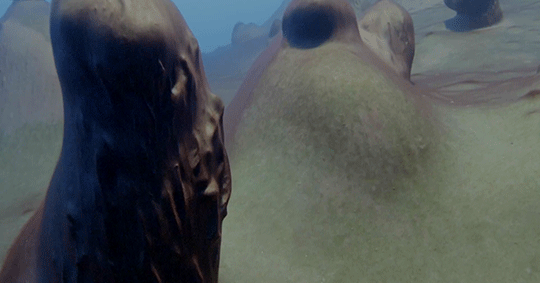
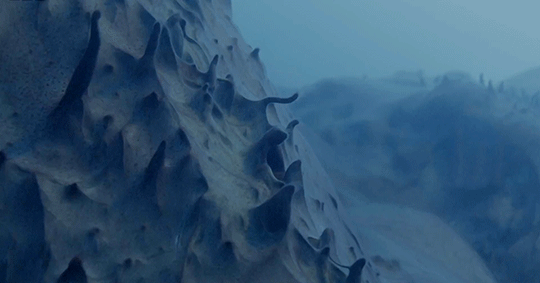
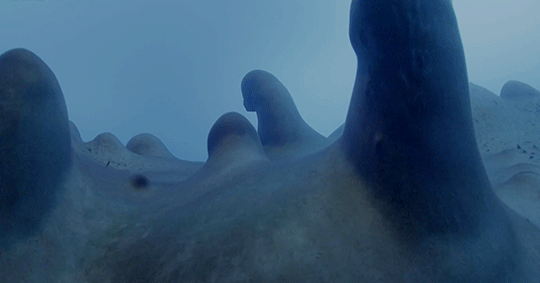
At the bottom of Lake Untersee in Antarctica are giant stromatolites, an ancient form of life on our planet. They first appeared closer in time to the formation of Earth, three and a half billion years ago, than to the present day. Scientists hope that studying these organisms in such a hostile environment will help us understand and recognize life on icy worlds beyond our own. BBC Earth
#BBC Earth#antarctica#lake untersee#stromatolites#microbialite#cyanobacteria#''scully you're not gonna believe this''
1K notes
·
View notes
Photo


Benedict Cumberbatch narrates a stunning film that will bring audiences to the most hostile continent on Earth – Antarctica
#benedict cumberbatch#bbc earth#antarctica#marvelcast#dailymarvelkings#voice work#he said penguins correctly and is so proud#i love him#mygifs
734 notes
·
View notes
Text
When Benedict, in full ginger beard mode, did the little lip-biting thing while recording the voiceover for BBC Earth...

(watch the clip, it comes right at the end 😍)
#Benedict Cumberbatch#BBC Earth#Antarctica#no longer saying#pengwings#and he's so happy to have gotten it right#Scruffybatch#look at that full gingery beard#Glassesbatch#kryptonite for my heart
44 notes
·
View notes
Photo

source
294 notes
·
View notes
Text
Micro-Reviews: Stuff I enjoyed with my Apple+ free trial, Part I
Recently had the chance to spend a couple months with Apple’s streaming service, and while I’m not going to keep an ongoing subscription, I did find several shows that I watched and enjoyed in their entirety and would recommend! The ones in this post are all documentary-related, and I think several would be worth having a one-month subscription to watch, at least.

Prehistoric Planet
Fantastic dinosaur documentary, narrated by David Attenborough, with the more current (presumably) understanding of prehistoric creatures’ lives and appearances--including feathers! I know feathered dinosaurs aren’t new, but I feel like it’s taken a while for feathers to make their way into moving depictions, y’know?
Anyway, it’s very fun, because dinosaurs are very fun. The creatures are photorealistic, and the backgrounds were so realistic I literally couldn’t even guess if they were all CG, or if they used real-life shots and placed the creatures in.
I know I’m not talking much about the content, because I can’t find much to say other than fantastic, absolutely worth watching. It combines a bunch of my favorite things: dinosaurs, BBC documentaries, and David Attenborough narration.
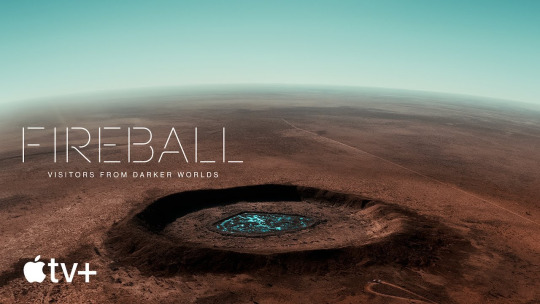
Fireball: Visitors From Darker Worlds
Another one for the documentary and science lovers. At an hour and a half, I broke it up into multiple sessions. This is about “the cultural, spiritual, and scientific impact of meteorites” and their craters.
Narrated and written by Werner Herzog, whose narration continually delighted me because it’s a bit like a monologue from a conversational partner. We’re introduced to a South Korean antarctic station, and as the camera walks trough the spacious, sunlight rooms, Herzog recounts how nearby, Robert Scott’s men spent the winter in tiny cave.
As we watch people prepare food in a shiny modern kitchen, he recounts how the historical men dreamt of banquets ripped away from their forks; one man who managed to eat in his dream was “rightfully hated” by his comrades. [heavy pause] But we’re not here for lobster and kimchi. Anyway, about the science...
Later, we get a digression about how delighted he is by some footage of someone walking into the background of a camera shot and doing some work on the ground, against the rules of good filmmaking.
Topic to tangent back to topic again. I suspect this is what people experience in conversation with me. The subject matter was interesting, but Herzog’s narration himself was so much fun that when I discovered he had previously created a documentary about people living in Antarctica, I immediately placed a library hold on it.
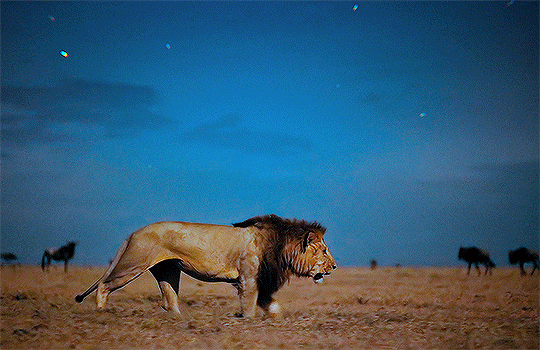
Earth at Night in Color
Absolutely fascinating. Using state-of-the-art cameras that are able to film at night not in the grey-and-green-toned night vision we’re used to, but in color that, if you didn’t remember the name of the show, would have you guessing they’re filming in the day, or maybe dusk at most. If you’re the kind of person who likes nature documentaries, you’ll like this. I also enjoyed the “behind the scenes” bits at the end of each episode that show how the crew filmed things, or issues they ran into. I am continually amazed at nature documentary camera people--the episode on Patagonia noted that the crew walked a collective 5000 kilometers.
Also notable is learning via Tom Hiddleston’s narration that apparently the British way of pronouncing puma is pyoo-mah, which led me on a google rabbit trail that ended in a linguist’s blog post from 2006.
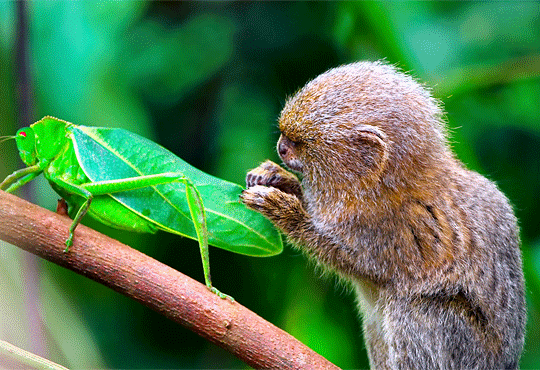
Tiny World
A nature docuseries that spotlights small creatures, narrated by Paul Rudd because he played Ant Man, which is hilarious. (The narration is perfectly fine, but reading the rationale in an interview cracked me up.)
I was continually amazed and astounded and the close-up footage they got of tiny creatures--at least with pumas (*Tom Hiddleston voice* pyoo-mahs) you can film them from a distance! Each episode focused on multiple creatures--more than five each time--so you get a good look at a lot of things. “Tiny” here ranges from ants and other teeny insects to small lizards, shrews, geckos and more.
They did a great job keeping a light, inquisitive tone--it’s not a comedy and you’ll also find yourself fearing for a hummingbird in the middle of a Caribbean hurricane, but my absolute favorite part was the episode with peacock spiders (tiny and cute and colorful), the males of which do a courtship dance. Tiny World made the fantastic decision to play The Macarena to accompany this.
#Prehistoric Planet#Earth at Night in Color#Tiny World#Fireball: Visitors from Darker Worlds#reviews#recommendation#original
22 notes
·
View notes
Photo
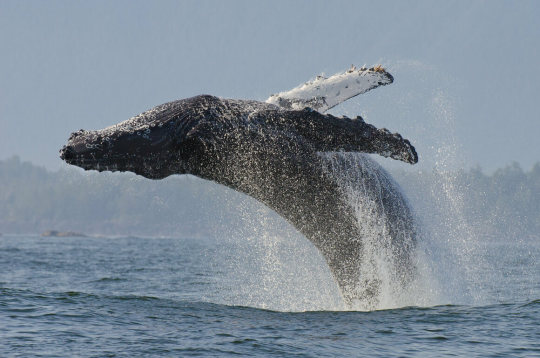
Capturing the Mysterious Antarctic Whale Gathering on Film Secret Obsessions is Atlas Obscura's new column where we ask wondrous people to take us down a rabbit hole. This edition features award-winning wildlife filmmaker and television host Bertie Gregory, as told to Associate Editor Sarah Durn. Antarctica is some 9,000 miles from my home in England, and I had been trying to get there for more than a decade to film one of the biggest animal gatherings on Earth. Hundreds of fin whales come there to feast on krill, a tiny, translucent crustacean, but the gatherings are little studied, rarely seen, and have never been properly captured on camera. For a wildlife filmmaker like me, capturing these legendary gatherings became the holy grail. Wanting to go to some remote corner of the globe to film an animal is a familiar feeling for me. It started young. Growing up, everyone at my school thought I was a complete freak because any moment of spare time, during sports practice or whatever, I would slip away to go sneak up on animals. I realized that if I took pictures of the animals I was seeing, it was a great way to get other people excited about what I was excited about—and also explain where I’d been sneaking off to. Before university, I wanted to see and photograph bears, so I emailed a bunch of wildlife tour guides on the west coast of Canada, and said, “Can I come hang out?” I ended up living in the basement of one guide for two summers, helping out on a bear- and whale-watching boat. I was there to see bears, but it was the whales that really captured my imagination. One day I went out with a tour group. Normally, you'd see maybe four or five whales, mainly either grey whales or humpback whales. For whatever reason, there was this freak event, where all of the humpback whales’ prey had come into shore. You couldn't drive the boat more than a hundred yards without having to go around a whale. There were humpback whales everywhere. That was the first time I saw wildlife en masse. A light switch went off in my head: “Wow, this is special.” Years later, in 2018, I had my first tantalizing glimpse of what the Antarctic has to offer. I was there filming for the BBC’s Seven Worlds, One Planet, and the fin whale gatherings were on the long list of animals we wanted to film. One day we saw a gathering of about 150 whales. It was spectacular, but very brief. I think we ended up watching them for only an hour. The German research ship we were on had a tight schedule, and we couldn’t stay. As soon as I had seen that, I was like, “I need to film this.” And I wanted to get it from all angles: in the air with drones, at water level with gyro-stabilized cameras, and diving underwater with a camera. And the only way of doing that, really, is with a sailboat, so you're super-maneuverable. When this series, Epic Adventures, was commissioned, I knew I wanted to try it. It was our most ambitious, most expensive episode. There was no budget for a reshoot. We had to get it. After two years of planning, we gathered an amazing team and set sail on a 75-foot sailboat across the infamous Drake Passage from South America to Antarctica. We could only stay 28 days. The whale gatherings are thought to happen right at the end of the season when it’s possible to visit the southern continent. So we were there as late as we possibly could be before the weather would get really bad. Near the start we saw this small gathering, but it was too rough to film. We knew it was happening, but the days just started ticking by. I felt awful. I’m in Antarctica, surrounded by cool people, looking for whales, it doesn't get better than that. But so many people were counting on us to get this. The idea of not being able to pull it off was really hard to take. Three quarters of the way through the shoot, I remember lying in my bunk, and my friend Dan Beecham, the other underwater cameraperson, was in the bunk above me. There were pieces of icebergs grinding on the hull, and you could hear the anchor dragging because the winds were so strong. And I remember looking up in the dark. “Dan, was this a bad idea? Like, do you think we can actually do this?” He was very calm and very wise, and said, “We can do this. We've done all the right things.” He was kind of the voice of reason in all the doubt. And the next day, the winds were calm. The sea was flat. The sun was out. For the first time, there were no clouds. And just as we were pulling the anchor up, I lifted up my binoculars to the horizon, and that was when I saw what looked like cannons going off in an old sea battle. It was all these whale blows backlit by the rising sun. As we motored towards the whales, the blows getting closer and closer, I couldn’t decide what lens to put on the drone. It's something I’ve done a thousand times, but I knew this could be the only flight. Finally, I was like, “Okay I just need to pick a lens and go.” Then I flew the drone up above the gathering. I have never seen anything so epic on a monitor screen, all these blows going off in front of snowy mountains. There were some 300 feasting whales. But to really appreciate how big these animals are, we needed to get in the water. The biggest danger of the whole shoot was getting lost while diving. It’s very easy to lose divers in the open ocean. We were all kind of on edge when we dropped in. All we could see is blue. The water's below freezing, so immediately you get this brain freeze. And then you wait. For permitting and disturbance reasons, the whales have to come to you. We could feel the whales before we could see them. Fin whales make a really deep noise you can’t hear. But you can feel your guts vibrate. Then a big group of chinstrap penguins came whizzing past us. And then out of the gloom, I see this weird shape. All of a sudden this giant fin whale mouth comes out of the blue and cruises right past me. It was so close we could look each other in the eye. There are no words to describe that feeling—to see an animal that big, that close. I followed its eye with the camera, and the body kept coming and coming. Eventually, the tail came past and I was like, “I’m not going to get shot like that in while.” But soon enough, another whale came along, then two more. All of a sudden there were whales coming from all directions. After we got out and the sun started to dip, whale blows were still going off everywhere. I remember Martha Kane, the medic, turning to me and saying, “You need to take a look at this with your eyeballs. Stop trying to film it and just look at it.” So often with this job, you're so focused on filming that you spend the entire time with your head in a monitor. I remember going up to the bow of the boat and looking out at the whales. It was like looking at a scene of what the planet was before humans messed it up. I'm very lucky that I get to go all over the world and see amazing animals, but literally everywhere we go, a guide or scientist tells us, “You should’ve seen what it was like 10, 20 years ago.” Wildlife populations are nosediving all over the world, but it’s possible to bring some of them back. Fin whales almost went extinct during the commercial whaling era. Now, thanks to protections and good governance, they’ve come back from the edge. And to see this truly wild place, with whales and penguins and the snowy mountains behind them, it was really emotional. This is what happens when you give nature an opening. It'll do the hard work, it will come back. We just need to give it the chance. Bertie Gregory is an award-winning wildlife filmmaker and the host of the new Disney+ show Epic Adventures with Bertie Gregory. He is a National Geographic Explorer and has hosted six projects for National Geographic (Leopards at the Door, Jaguar Vs Croc, Wild_Life, Resurrection Island, and The Big Freeze). Resurrection Island won the Best Television Host award at the Jackson Wild Awards in 2019. Bertie also films for the BBC David Attenborough series Seven Worlds, One Planet, and is one of BAFTA’s youngest-ever cinematography winners.
1 note
·
View note
Video
youtube
Trailer for new documentary from BBC Earth, “Antarctica.” Here’s the link to the website, including a description of some of the venues where it will be shown. Description from BBC:
From the filmmakers who brought you Planet Earth II, comes Antarctica, the story of a land of sheer mystery. And yet what happens here affects every single one of us. With never-before seen footage, this film will transport you to the farthest reaches of this wild and majestic continent.
Award-winning actor, Benedict Cumberbatch, narrates this stunning film that will bring you to the most hostile continent on Earth.
12 notes
·
View notes
Photo

1st ✧ ´The Power of the Dog´ press conference for the NYFF59, with Benedict Cumberbatch, Jane Campion, Kirsten Dunst, Kodi Smit-McPhee and Ari Wegner. (Full video) (Gallery)
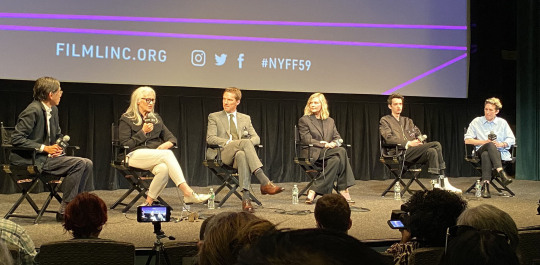
(x)
✧ ´The Power of the Dog´ premiere at the 59th New York Film Festival. (Gallery) (Official clips: x x x + interview)
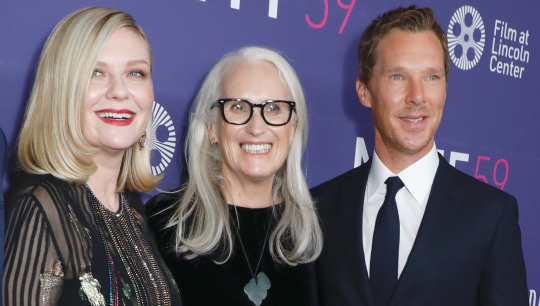
✧ Jane Campion and Cast Introduce The Power of the Dog | NYFF59 (Video) (Gallery) (Behind the scenes)
(more clips x x x x x x + interview)
2nd ✧ Jaeger-LeCoultre: Benedict visited The Sound Maker Exhibition in New York. (Clip) (Gallery x x)
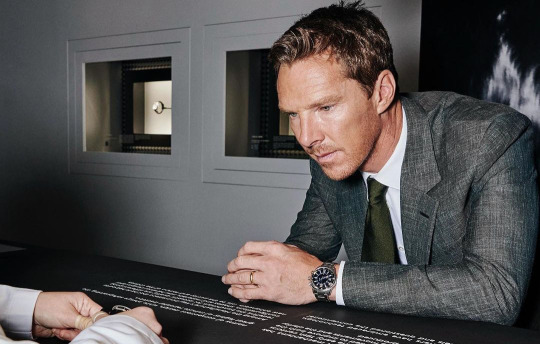
3rd ✧ TPOTD screening at the Paris Theater. (Gallery x x) (Clip)
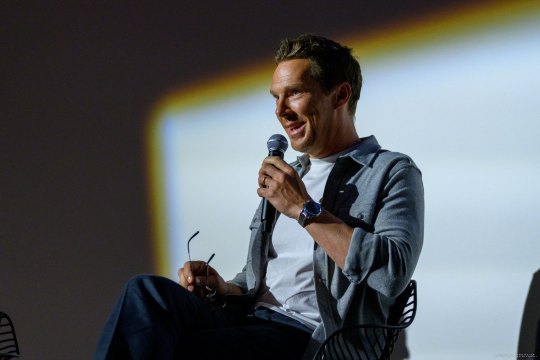
10th ✧ “The Electricial Life of Louis Wain” special screening in London. (Gallery) (clips x x x)
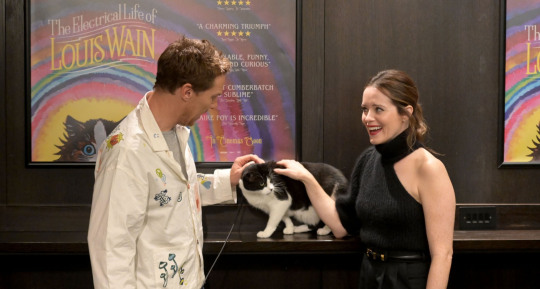
11th ✧ TELOLW new poster.
✧ TPOTD premiere at the 65th BFI London Film Festival. (Gallery x x)
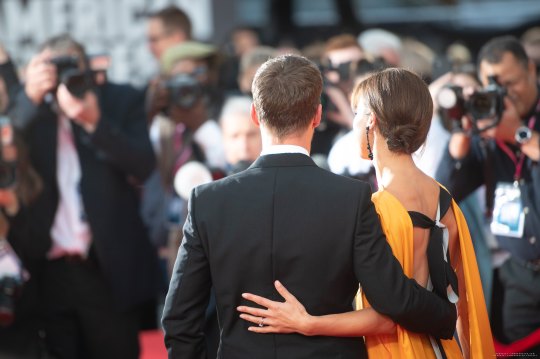
Jane Campion introducing TPOTD cast.
Official, press and fans clips: x x x x x x x x x x
Interviews: Getty Images / On Demand Ent. / Reuters
12th ✧ TPOTD Awards/Tastemaker Screening. (Gallery x x)
14th ✧ New promotional pic from Spider-man no way home.
✧ Benedict on Total Magazine.
15th ✧ Benedict and Claire Foy talked about TELOLW with ET Canada.

✧ Interview for the Russian talk show Evening Urgant.
✧ New still from TPOTD.
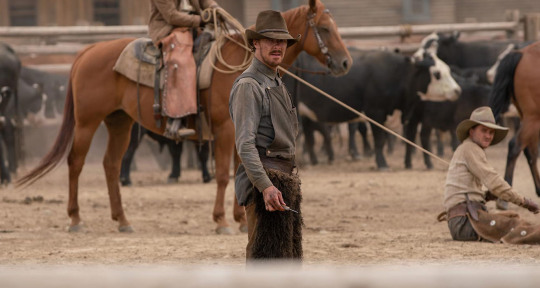
18th ✧ “Doctor Strange in the Multiverse of Madness” got delayed again. Now is set to release on May 6, 2022.
✧ Benedict in a clip recording for the BBCEarth documentary, Antarctica.
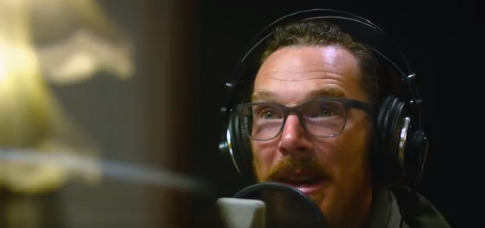
19th ✧ New stills from TELOLW.
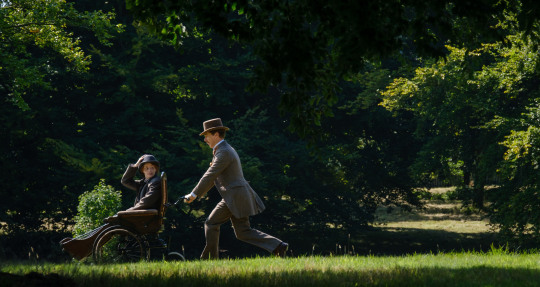
21st
✧ Clips with Benedict and Claire Foy for The Associated Press. (x x)
✧ Benedict talked about BBC Earth Antarctica.
22nd ✧ Benedict talked about Louis Wain for Amazon Studios.
23rd ✧ New old pics from the behind the scenes featured in the book “The Story of Marvel Studios: The Making of the Marvel Cinematic Universe” (Set 1 and Set 2)
25th ✧ Benedict and Claire Foy talked TELOLF with Today.

26th ✧ Teaser for a new photoshoot with Benedict, for Esquire.
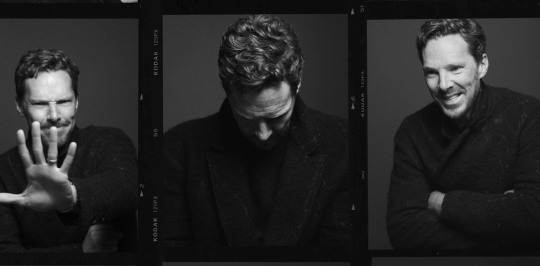
✧ Benedict talked TELOLW in Live with Kelly and Ryan.
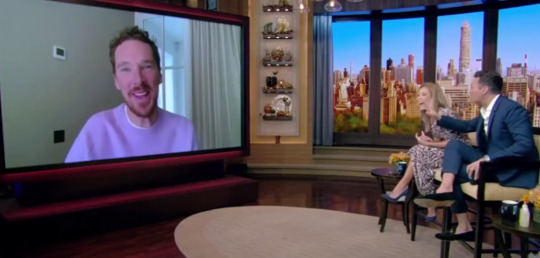
28th ✧ Benedict Cumberbatch to Play Poisoned KGB Agent Alexander Litvinenko in HBO Limited Series.
30th ✧ Letters Live 2021 at the Royal Albert Hall.
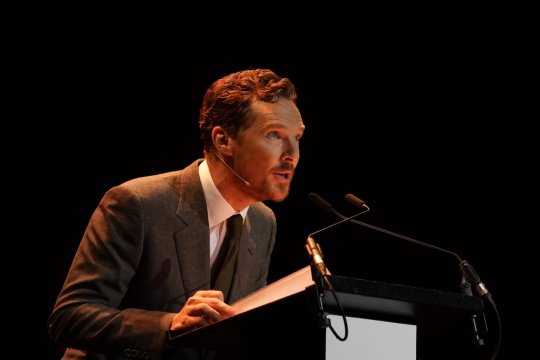
(More pics x x x x)
»»———FIN———-««
Another intense month for Benedict and his agenda!! My apologies if i missed something or if I put something twice, i tried my best to catch up with a month of Benedict content is two days!
#benedict cumberbatch#sophie cumberbatch#benedictcumberbatchedit#benedict monthly#october 2021#the power of the dog#the electrical life of Louis Wain#doctor strange#spider man no way home#marvel#NYFF 2021#bfi london film festival#bbc earth Antarctica#Jaeger-LeCoultre#Jane Campion#kirsten dunst#claire foy#long post#news#my post
129 notes
·
View notes
Photo





Frans Lanting
Frans Lanting has been hailed as one of the great photographers of our time. His influential work appears in books, magazines, and exhibitions around the world. Born in Rotterdam, the Netherlands, he earned a master’s degree in economics then moved to the United States to study environmental planning. Soon after, he began photographing the natural world–and never turned back.
For three decades he has documented wildlife from the Amazon to Antarctica to promote understanding about the Earth and its natural history through images that convey a passion for nature and a sense of wonder and concern about our living planet.
“Frans Lanting has set the standards for a whole generation of wildlife photographers,” according to the BBC. “Mr. Lanting’s photographs take creatures that have become ordinary and transform them into haunting new visions,” writes acclaimed field biologist Dr. George Schaller in The New York Times. “As a chronicler of natural history today, Frans Lanting is a singular, extraordinary talent,” says Thomas Kennedy, former Director of Photography at National Geographic. “He has the mind of a scientist, the heart of a hunter, and the eyes of a poet.”
Lanting’s work has been commissioned frequently by National Geographic, where he served as a Photographer-in-Residence. His assignments have ranged from a first look at the fabled bonobos of the Congo to a circumnavigation by sailboat of South Georgia Island in the subantarctic. In a remote part of the Amazon Basin, he spent weeks on platform towers to obtain rare tree-canopy views of wild macaws. He has lived for months with seabirds on isolated atolls in the Pacific Ocean, tracked lions through the African night, and camped among giant tortoises inside a volcano in the Galápagos.
Lanting did pioneering work in Madagascar, where he documented wildlife and tribal traditions never photographed before. His celebrated coverage of the Okavango Delta in National Geographic has been credited with inspiring a surge of international interest in wildlife and conservation in Botswana. His photo essays about rainforest ecology in Borneo, emperor penguins in Antarctica, and the troubled fate of puffins in the North Atlantic, have been featured in publications around the world. Images from his yearlong odyssey to assess global biodiversity at the turn of the millennium filled an issue of National Geographic.
Lanting’s work also includes profiles of ecological hot spots from India to New Zealand, as well as features on the majesty and plight of albatrosses, the nearly extinct Asiatic cheetahs in Iran, and a remarkable study of chimpanzees in Senegal that is shedding new light on human evolution.
3 notes
·
View notes
Photo




#benedict cumberbatch#bbc earth#antarctica#marvelcast#dailymarvelkings#mensource#face journey#mygifs
345 notes
·
View notes
Video
youtube
Antarctica: Official Trailer | BBC Earth
6 notes
·
View notes